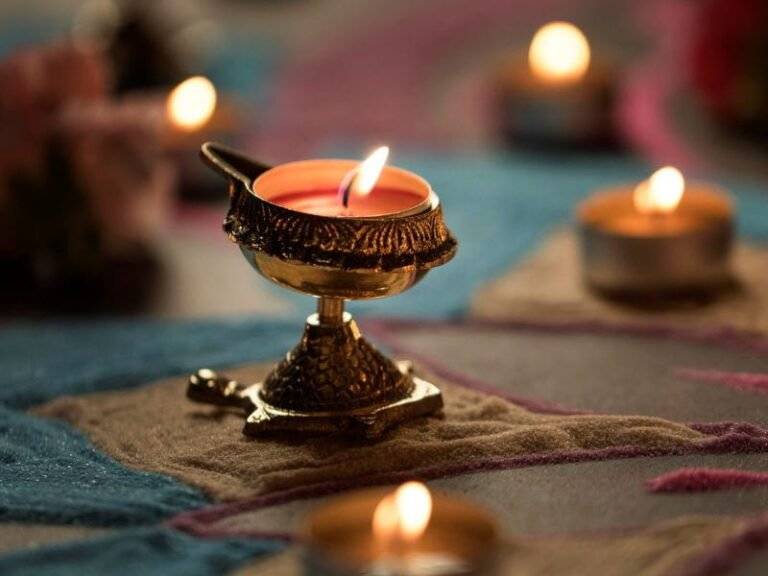How do I plan a traditional Kenyan event? I’ll have you know it’s pretty easy once you understand the customary requirements.
Kenya has about 43 ethnic communities, all with unique practices handed down over several generations.
Each community has customary procedures for childbirth, initiations, weddings, and funerals.
While I can’t cover each community’s intricate traditions, I’ll share an overview on some of the Kenyan traditions and customs and how to plan a traditional Kenyan event.
Planning a Traditional Kenyan Event? We’re Event Planners in Kenya, Talk to Us
Childbirth
The birth of a child is cause for massive celebration in any Kenyan community as it signifies the continuity of bloodlines and the community’s growth.
Therefore a celebration around it consists of elaborate rituals, such as the naming ceremony, which draws from past ancestral practices.
The names given have significant meanings about the season of birth, activity at the time of delivery, or in honor of an ancestor.
The proper childbirth and naming event involves rituals conducted by the community elders such as grandparents, aunties, uncles, or any select seniors.
Celebratory events around these milestone consist of family and friends of the child’s parents being invited to the home for an event involving feasting, song, and dance.
In the Kamba community, childbirth was a cause for a grand celebration with the parents slaughtering a goat or bull—while mothers communed to name the newborn three days after birth.
The Luo childbirth rituals involve naming the child, shaving, taking the newborn outside for the first time, and visiting the mother and baby.
The visitation by friends and other ladies from the village was always arranged before the visiting day.
On the day of visitation, each lady carries traditional foods like dry meats, wild vegetables, millet or sorghum flour, firewood, and beads.
Most often, in the local indigenous Kenyan communities, there’s plenty of traditional food and drinks as the newborn is welcome into the family.
Gift-giving is a significant part of this celebration, with most gifts consisting of clothes, baby products, foodstuffs and money.
Initiation
Initiation is one of the most critical celebrations among Kenyan communities.
It’s the passage of a child into adulthood, marking their entrance into a higher level of society with added responsibilities.
Every community has an initiation ceremony featuring either circumcision (males only), scarification, tattoos, teeth removal, piercings, or lip plugs.
Several Kenyan communities, like the Maasai, Kalenjin, and Luhya, hold elaborate initiation rites steeped in traditional rituals that last for weeks and even months.
The Maasai, for instance, hold the ceremony once every five years for boys aged between nine and 15. The boys spend a night in the thick forest with little sustenance to prepare and harden them.
The celebration involves sacrificing a large bull; where the meat is roasted and fed to thousands of attendants, while the organs are offered for ritual blessings.
Among the Luhya, an uncle circumsizes the boy while the father gathers the necessary items for the ceremony: a bull, a he-goat, and traditional beer.
Kalenjin initiates are subjected to a lengthy isolation period to strip them of all childish mannerisms and unhealthy family dependency.
After circumcision, the initiates are secluded from the rest of the communities for months, during which they are offered instructions on how to lead proper adult lives.
Among all Kenyan communities, initiation ceremonies consist of song, dance, and a massive feast.
Family and friends congregate to celebrate the initiates by sharing advice, reminiscing about childhood exploits and for the older ones spreading good cheer and guidance.
The attire during these ceremonies is often traditional or modern, with Ankara and Kitenge trimmings.
The Smart Guide to Planning for Food and Beverage at Events
Weddings
When it comes to a traditional Kenyan wedding, be prepared for a series of meetings that likely include family introductions, betrothals, bride price payments, and the solemnization of the unions.
Some communities, like Indians, Somalis, and Luos, require these meetings to be conducted in intricate stages. In contrast, others, like the Kikuyu, can combine all into one event due to issues of time or financial constraints.
These meetings are conducted by select elders and the parents or guardians, mainly fathers or uncles of the bride and groom, respectively.
Women, especially aunties, play significant roles in counseling brides-to-be, helping to prepare them, and overseeing the preparation and layout of food and drinks.
For attire, most communities have traditional regalia consisting of beads, cowrie shells, Maasai shuka, khanga and animal hide often worn by the bride and groom.
However, for some brides and grooms, Ankara and Kitenge-tailored formal wear is sufficient, same for most guests.
For the Somali, the Dirac is their special wedding wear, and for Indians, the ubiquitous sari.
Someone once told me the proof of a successful traditional Kenyan wedding is in the quality and quantity of food. More often, people may forget everything else, but they’ll never forget the sumptuous filling feast.
Traditional Kenyan foods across communities include ugali, pilau, chapati, rice, mukimo, assorted meat dishes, vegetables, tea, porridge, and juices. Among Indians, expect naan, various meat curries, butter chicken, chana masala and other mouth-watering dishes.
Traditional brews like muratina and busaa must be availed in plenty, mainly from the groom’s side, for the elders on the bride’s side to partake and as part of the customary requirements.
Gift giving is a huge part of any traditional Kenyan wedding, with gifts ranging from electronics, bedding, cutlery, foodstuffs, jewelry, money, and even gold.
Funerals
End-of-life events in Kenya are primarily solemn affairs revolving around elaborate church ceremonies.
Death is considered the final rite of passage as the individual transitions into another state of being.
“Proper” burial rites were seen to be more of a “guarantee of protection” for the living than to secure a safe passage for the dying. It was believed that the dead had some ardent power over the living.
Few communities maintain ties with traditional practices like the Luo, Maasai, Indians, and Luhya.
Luos have death rituals depending on the deceased’s age, gender, and social standing.
Some few days after the burial close relatives shave their hair to mark the end of the mourning period and the beginning of a new life. However, Christianity, Islam, and modernity have reduced most traditional rituals.
The Mijikenda create wooden commemoration boards for their departed ones.
At the same time, cremation has been an essential ritual of the Indian Hindu community in Kenya since the 1900s. Now, some indigenous communities like the Kikuyu are taking it up.
Unless otherwise advised, black is the proper color for any attire during these events.
The general steps to follow when planning a traditional Kenyan funeral are; the death announcement, the wake, grave digging and funeral arrangements, prayers, church service, and finally, the burial.
How to plan a traditional Kenyan event
Now that you have some background information on some of all the possible traditional Kenyan events, here’s a general guide on how to plan your next Kenya cultural event.
1. Detailed planning
- Understand the customs and traditions of the community and heed critical rituals and other requirements.
- Scope out the event venue to establish what’s required, such as hire of tents, tables, chairs, decorations, AV equipment, catering, ablutions, and security. When making these plans, take note of other events happening on the day and weather predictions.
- Create an event and floor plan that caters to everyone’s needs, including children, older adults, and those differently abled.
- Agree on the food and drinks plan with the event host or critical contact.
- Create an elaborate execution plan.
Where to Hire Tents Tables Chairs and Decor in Kenya
2. Vendor sourcing
Source from the best and most reliable suppliers since these are pretty sentimental events that can never be redone. Ensure you brief them in detail, get to know them, establish a frequency of communication and sign binding contracts
3. Guests registration and management
Such events attract more than just family and friends, especially if food, drinks, or dignitaries are involved. Therefore work with a reputable and trained event registration firm and security experts to ensure the event runs smoothly with zero to minimal hitches.
4. Transport and logistics
Ensure you have a logistics schedule and plan for family and friends, especially for weddings and funerals, since this is where most challenges arise. Communicate what’s available, timings, and any fees payable in time for them to confirm.
5. Emergency and rescue plan
Whatever the number of guests, ensure you have an emergency team and first aid kits distributed evenly for quick action should the need arise. It’s also prudent to establish the nearest health facilities and police station for the confirmed venue or location.
6. Compliance
Based on the location, confirm which permits and licenses you must have before the event. Often you may need a NEMA license for music and public address systems.
7. Budget
Consider the total budget and work within its provisions. Whether it’s tents, tables and chairs, the sound, catering, or licenses, employ some creativity to find good bargains without compromising quality.
Frequently asked questions
1. How do Kenyans celebrate?
Kenyans celebrate by creating a massive feast of local popular foods, then including song and dance. They also like listening to speeches and swapping stories during these celebrations.
2. What is the culture of Kenya?
It’s their way of life that merges the traditional with the modern. This is evident from their communal events such as childbirths, initiations, weddings and funerals.
3. Why are cultural events important?
They unify communities around commonalities they share and help them build links with their history and past. Cultural events are valuable for fostering vibrant families and communities.
In summary, that’s how to plan a traditional Kenyan event; it’s easy once you know what’s required and the expectations.
I hope this information helps and guides you to create an outstanding, memorable experience for your guests.
Explore Affordable Event Packages and Prices
Reasons to work with us
At Lucidity Africa Events, we’re event planners in Nairobi with a good inkling on how to plan a traditional Kenyan event.
Here are four good reasons to consider working with us.
1. Proven expertise for 11 years
2. Community of suppliers and industry partners
3. Trained, professional team
4. Affordable services
To make a booking or ask for a quote, contact us today, and we’ll revert ASAP.




